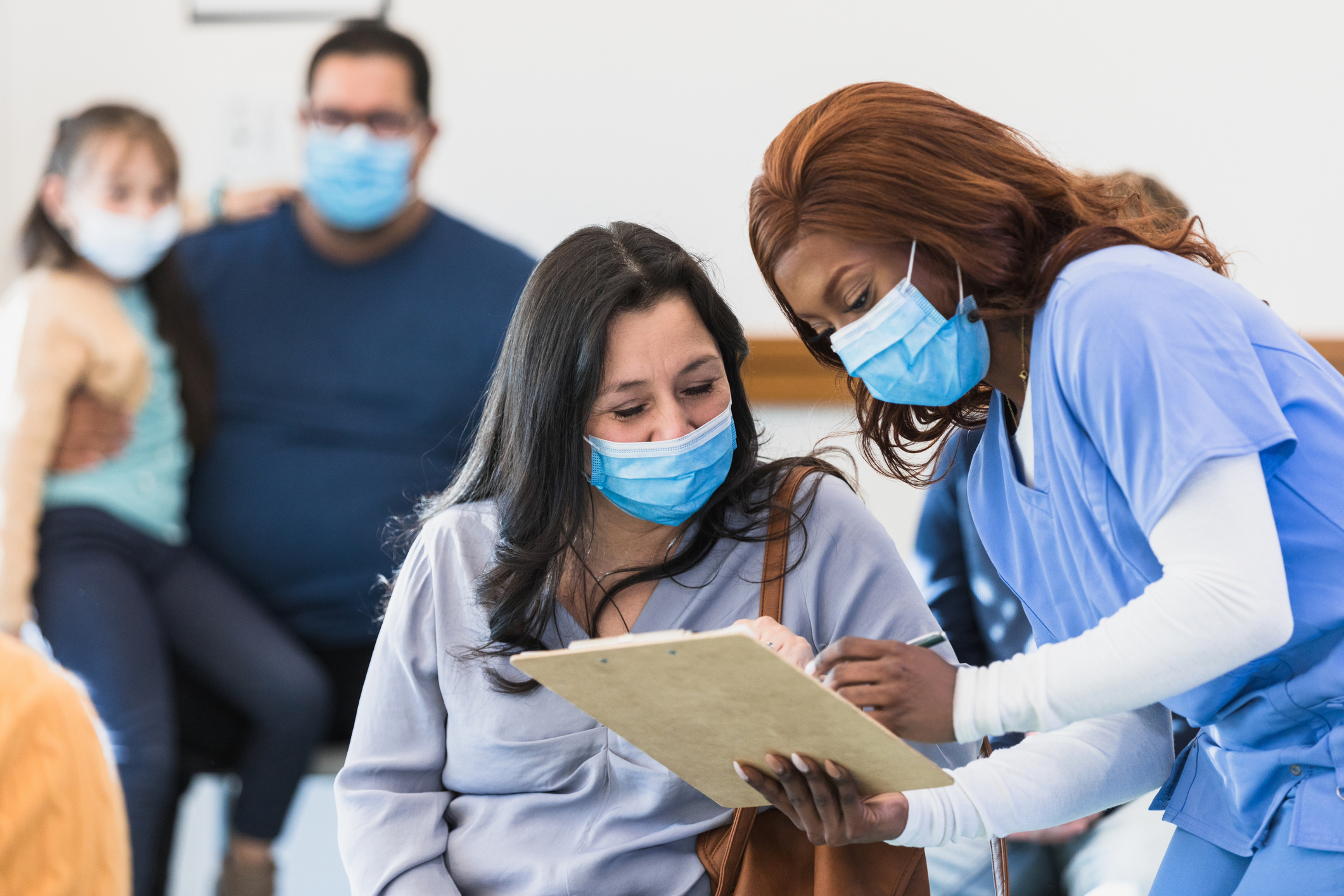 New research from DePaul University's Roselyne Tchoua finds community health workers helped gather survey data that enabled an AI model to predicted readmission rates with 5% more accuracy. (iStock.com/SDI Productions)
New research from DePaul University's Roselyne Tchoua finds community health workers helped gather survey data that enabled an AI model to predicted readmission rates with 5% more accuracy. (iStock.com/SDI Productions)CHICAGO – Heath informatics — the intersection of health care data and machine learning — is a rapidly growing force throughout many hospitals. Researchers at DePaul University and Sinai Urban Health Institute argue the technology has been underutilized to examine issues of inequality. In a new study using predictive AI models, DePaul computer scientist
Roselyne Tchoua finds a human element could prevent at-risk patients from falling through the cracks.
“How often patients talk to a community health worker, the duration of the conversation and the amount of time they spend looking for resources all had impact,” said Tchoua, assistant professor of computer science in the Jarvis College of Computing and Digital Media. “There is an important human factor to the work they do, actually connecting to the patients.”
In a study of more than 1,300 patients at Chicago’s Sinai hospital system, Tchoua and her coauthors compared data from patients who had interacted with community health workers and those who had not. The research was presented at the Transdisciplinary AI conference in late 2023 and is
now available online. Findings include:
- When community health workers helped gather survey data from a patient, the AI model predicted readmission rates with 5% more accuracy.
- Age was the most important feature used by the model to predict readmission. The next most important variable was the total duration of engagement patients had with community health workers.
- Patients between the ages of 50 and 59 were found to be a higher-risk population, as were patients over the age of 70.
- Patients with more than one referral to a community health worker had much higher rates of readmission, up to 90% for third-visit patients.
Tchoua was
named an Equity Research Fellow with the Sinai Urban Health Institute in 2022. She conducted the research with Kelly MacCabe, associate director of community health innovations at Sinai Urban Health Institute, and DePaul alumna Kate Karam, who worked on the study as a graduate student.
The research focuses on Mount Sinai Hospital, which is located on the West Side of Chicago and serves a majority minority population. More than 70% of Sinai patients are people of color.
Sinai was an early adopter of the model that employs community health workers to identify and address barriers to care, such as economic stability, access to health care, and education—also known as social determinants of health.
“Social determinants of health started to appear as important factors in determining whether patients who had engaged with community health workers will return to the hospital, but we need more data,” Tchoua said. Other significant factors included age and whether patients had previously engaged with community health workers.
Using a machine learning model called the random forest, Tchoua compiled data of patient survey responses and analyzed the patterns in the data. Tchoua employed the random forest classifier because it allows transparency in its decision-making.
“You can’t just have the machine tell you the answer,” said Tchoua. “You want it to tell you why.”
Building from this study, Tchoua plans to employ AI to explore more of the connections among humans and data in healthcare. Reducing hospital readmissions saves money, and Tchoua would like to surface this monetary value to health care systems in clear way.
“The next step would be better targeting the patients who should be assigned a community health worker and routing other ones to a primary care physician,” said Tchoua. “Making a cost analysis of the same problem will help make an even stronger argument.”
Emily Diaz is a student assistant in University Communications.
###
Source:
Roselyne Tchoua
rtchoua@depaul.edu
Media Contact:
Kristin Claes Mathews
kristin.mathews@depaul.edu
312-362-7735